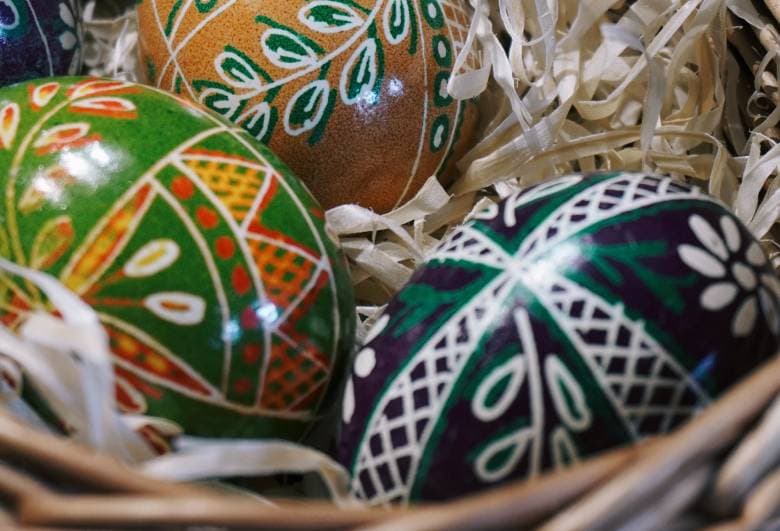The Norwegian way of observing Good Friday

In Norway, there are multiple public holidays during the Easter period, including Maundy Thursday (skjærtorsdag), Good Friday (langfredag), and Easter Monday (andre påskedag). Here's why – and how – Good Friday is marked in the country.
In Christian tradition, Good Friday marks the day when Jesus Christ died on the cross. It is marked on the Friday before Easter.
According to many linguists, in the English term Good Friday, the word "good" is used with a more dated meaning of "holy," meaning that it should be understood as "Holy Friday."
In Norwegian, Good Friday is called langfredag – literally meaning "long Friday." The observance's name commemorates the crucifixion of Jesus and his long suffering on the cross.
An important Christian holiday
Good Friday is one of the most important events in the Christian calendar, and it is observed as a day of mourning and reflection in Norway.
Traditionally, Christians use this day for contemplation, self-reflection, penance through hard work, and mourning the death of Jesus.
As the Church of Norway points out on its website, the church services on Good Friday are often characterized by long readings from the more solemn parts of the Bible, which focus on Jesus's suffering and death.
During the service, the candles on the altar are not lit. In several places, singing without the accompaniment of the organ or other instruments takes place.
How Norwegians observe Good Friday
Most Norwegian businesses and government offices are closed on Good Friday, and many people attend church services or spend quality time with family and friends.
While some mark the day by rigorous fasting, others observe it by limiting themselves to one or two meals in a day or abstaining from meat altogether. Others eat traditional foods, such as lamb and fish dishes, on the day.
In some parts of Norway, people go on long outdoor walks throughout the Easter period (påskefjelltur in Norwegian) and use the opportunity to enjoy the spring weather and nature.
Good Friday is an especially significant holiday for Norway's Christian community, as it reflects the country's Christian heritage and values.
After langfredag, Norwegians will mark Holy Saturday (påskeaften), and churches will keep their doors open overnight and await the celebrations of Easter on Sunday.
Useful vocabulary
Maundy Thursday - skjærtorsdag
Good Friday - langfredag
Easter - påske
Easter Monday - andre påskedag
Happy Easter! - God påske!
Comments
See Also
In Christian tradition, Good Friday marks the day when Jesus Christ died on the cross. It is marked on the Friday before Easter.
According to many linguists, in the English term Good Friday, the word "good" is used with a more dated meaning of "holy," meaning that it should be understood as "Holy Friday."
In Norwegian, Good Friday is called langfredag – literally meaning "long Friday." The observance's name commemorates the crucifixion of Jesus and his long suffering on the cross.
An important Christian holiday
Good Friday is one of the most important events in the Christian calendar, and it is observed as a day of mourning and reflection in Norway.
Traditionally, Christians use this day for contemplation, self-reflection, penance through hard work, and mourning the death of Jesus.
As the Church of Norway points out on its website, the church services on Good Friday are often characterized by long readings from the more solemn parts of the Bible, which focus on Jesus's suffering and death.
During the service, the candles on the altar are not lit. In several places, singing without the accompaniment of the organ or other instruments takes place.
How Norwegians observe Good Friday
Most Norwegian businesses and government offices are closed on Good Friday, and many people attend church services or spend quality time with family and friends.
While some mark the day by rigorous fasting, others observe it by limiting themselves to one or two meals in a day or abstaining from meat altogether. Others eat traditional foods, such as lamb and fish dishes, on the day.
In some parts of Norway, people go on long outdoor walks throughout the Easter period (påskefjelltur in Norwegian) and use the opportunity to enjoy the spring weather and nature.
Good Friday is an especially significant holiday for Norway's Christian community, as it reflects the country's Christian heritage and values.
After langfredag, Norwegians will mark Holy Saturday (påskeaften), and churches will keep their doors open overnight and await the celebrations of Easter on Sunday.
Useful vocabulary
Maundy Thursday - skjærtorsdag
Good Friday - langfredag
Easter - påske
Easter Monday - andre påskedag
Happy Easter! - God påske!
Join the conversation in our comments section below. Share your own views and experience and if you have a question or suggestion for our journalists then email us at [email protected].
Please keep comments civil, constructive and on topic – and make sure to read our terms of use before getting involved.
Please log in here to leave a comment.